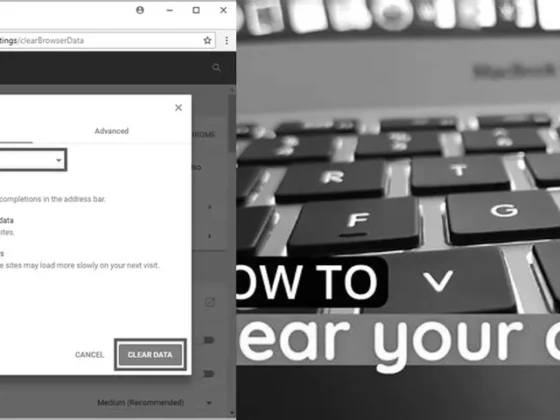What Mysteries Lie Beyond Google’s Reach? – Are you tired of Google having all the answers? Well, you’re not alone! While Google is undoubtedly a powerhouse of information, there are certain questions that even the mighty search engine cannot answer. So, if you’ve ever found yourself pondering over a query that left Google stumped, you’ve come to the right place. In this blog post, we’ll delve into the limits of Google’s knowledge and explore the questions that confound even the most advanced search algorithms. Get ready to uncover the mysteries that lie beyond the reach of the world’s favorite search engine.
The Limits of Google’s Knowledge
As we plunge into the digital era, we often hear the phrase, “Just Google it.” It’s a testament to how much we rely on the search engine giant to answer our queries, from the mundane to the complex. But is there a boundary to what Google can provide us in terms of answers? Indeed, there are certain types of questions that even Google, with its vast index of the world wide web, cannot tackle satisfactorily.
Understanding Google’s Functionality
Before we delve into the questions that stump Google, it’s important to understand what Google is designed to do. Google, at its core, is a tool that indexes web pages and provides the most relevant results based on algorithms. It is not sentient and does not possess personal experiences or subjective opinions. Therefore, while it can serve up facts, definitions, and data, it falls short when asked to navigate the subjective realm of human experience.
Questions Requiring Subjective Opinions
Google cannot answer questions that require subjective or personal opinions. For instance, asking Google, “What are the best movies of all time?” might return a list of critically acclaimed films, but it cannot tell you which movie you, personally, will enjoy the most. This is because enjoyment of a film is a subjective experience that varies from person to person.
Too Specific or Obscure Queries
Questions that are too specific or obscure can also leave Google at a loss. If a query pertains to a very niche topic that lacks substantial online documentation or discussion, Google may not have enough information to provide a definitive answer. This could include highly personal or localized questions that have not been widely discussed or documented on the internet.
Questions That Confound Google
Let’s explore specific questions that highlight the limitations of Google’s capabilities, providing a window into the distinction between human intelligence and artificial search algorithms.
“Where Do You Want to Be in Five Years?”
This question is a classic example of one that Google cannot answer for you. It is intrinsically personal and requires introspection and personal reflection, something that Google, as an information retrieval system, simply cannot perform.
“Can a Statement Be True and False at the Same Time?”
Philosophical queries like this one are too abstract for Google to handle. Such questions often require nuanced discussion and subjective interpretation, which are beyond the scope of Google’s programming and purpose.
“How Much is Enough?”
When it comes to subjective measures of sufficiency, whether in wealth, success, or happiness, Google cannot provide an answer that would be universally acceptable or personally tailored to an individual’s values and circumstances.
“Is There a God?”
Religious and spiritual questions are deeply personal and often rely on faith rather than empirical evidence. As such, Google can provide a range of arguments and beliefs pertaining to this question but cannot deliver a definitive answer.
“What Are Your Weaknesses?”
This question, often encountered in job interviews, requires self-assessment and honesty. Google can offer advice on how to answer this question but cannot provide a personal response for you.
“How Are You?”
A question as simple as inquiring about one’s well-being is beyond Google’s answering capacity. While it can define what ‘well-being’ means, it cannot assess and convey how an individual is feeling at any given moment.
When Google Assistant Falls Short
Even with the advent of Google Assistant and voice-activated technology, there are situations where Google may not respond as expected. If you find Google Assistant unresponsive, it’s important to ensure that the Google Assistant, Hey Google, and Voice Match settings are activated. However, even with these features turned on, Google Assistant cannot provide personal opinions or experiences.
Understanding the World Wide Web’s Role
It’s crucial to remember that Google is not the keeper of all knowledge but rather a gateway to information that exists on the world wide web. It connects users to the answers that have been shared by others online. If information hasn’t been shared and indexed, Google cannot retrieve it.
Concluding Thoughts
While Google is an incredibly powerful tool that has revolutionized access to information, it has its limitations. Questions that require subjective judgment, personal experiences, or are too specific or obscure often leave Google at a loss. This serves as a reminder of the unique value of human cognition and the subjective nuances that technology, as of now, cannot replicate.
As we continue to navigate the information age, it’s important to appreciate the strengths and limitations of the tools we use. Google can provide a wealth of knowledge, but for some questions, the answers lie within us or in the wisdom shared through human connection and experience.
FAQ & Related Questions about What Question Does Google Cannot Answer?
Q: What types of questions can Google not answer?
A: Google cannot answer questions that require subjective or personal opinions. It is designed to provide information and not personal opinions.
Q: Can Google answer questions that are too specific or obscure?
A: No, Google may not be able to answer questions that are too specific or obscure.
Q: Why won’t Google answer my question?
A: If your Google Assistant doesn’t work or respond to “Hey Google” on your Android device, make sure Google Assistant, Hey Google, and Voice Match are turned on. You can check the settings on your Android phone or tablet by going to Assistant settings or opening the Google Assistant app.
Q: Is there a question that has no answer?
A: Yes, a rhetorical question is a type of question that has no answer. It is often used to make a point or create an effect in speech or writing.
Q: Where can I find more information about rhetorical questions?
A: You can find more information about rhetorical questions in the Vocabulary.com Dictionary.


